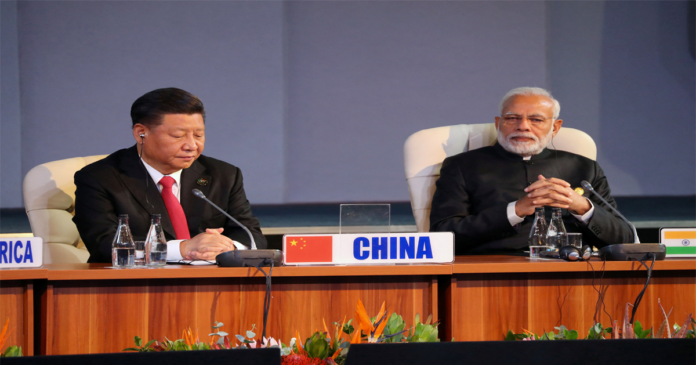The host nation of India views Chinese President Xi Jinping’s decision to forgo the G20 meeting as a slight to Beijing and a new blow to the already strained relations between the nuclear-armed Asian superpowers.
Xi skipping G20 summit setback to India-China ties: Both nations have not responded to Xi’s decision to stay out, but analysts said it aggravated already-existing issues like a military standoff on their Himalayan border and India’s insistence that the rest of the relationship cannot forward without a settlement of the border dispute.
They claimed that a bilateral relations thaw appeared far off.
The spokesperson for the Indian foreign ministry declined to comment on Beijing’s choice to send Premier Li Qiang to the summit on September 9–10 in place of Xi on Tuesday.
Chinese Foreign Ministry spokesperson Mao Ning responded that Beijing had supported India’s hosting of the summit when asked if Xi’s choice reflected China-India tensions. Relations between China and India “remain stable,” and Beijing is ready to cooperate with New Delhi to improve them, Mao said.
Even while senior members of Prime Minister Narendra Modi’s ruling Bharatiya Janata Party (BJP) said in private that presidents leave summits for their own reasons, Beijing’s choice revealed its displeasure with India’s economic progress, despite efforts by Indian government officials to downplay Xi’s absence.
When asked about Xi’s absence, BJP vice president Baijayant Jay Panda stated, “As far as China is concerned, they often show a degree of petulance.”
They may find it difficult to accept that after four decades, India’s economy has experienced the fastest growth.
“India-China Border Standoff 2020”
After forces from both sides engaged in combat in the western Himalayas in June 2020, which resulted in the deaths of 20 Indian soldiers and four Chinese soldiers, relations between India and China took a severe hit.
Since then, several rounds of military and political negotiations have helped to bring some quiet to the approximately 3,000 km (1,860 mi) long border, although some areas still see active fighting.
India wants a return to positions held before to the summer of 2020 as well as disengagement at two further contentious areas. Tens of thousands of soldiers, weapons, and supplies have been gathered by both sides in the highlands in the meantime.
various iterations
Modi and Xi spoke last month on the margins of the BRICS conference in Johannesburg, but the accounts of their conversation released by the two nations on how to resolve the border issue showed that they had different perspectives.
According to India, the two leaders decided to instruct their officials to work quickly to resolve the boundary dispute in the western Himalayas.
China said Xi highlighted that strengthening relations benefits both nations as well as world peace and stability without mentioning any specific agreements.
Beijing became angered due to New Delhi’s alignment with the United States and its initiatives to restrict Chinese companies from operating in crucial telecom and technology sectors starting in 2020.
The military conflict in the Himalayas and India’s membership in the four-nation Quad grouping are among the biggest difficulties between China and India, according to Shi Yinhong, a professor of international affairs at China’s Renmin University.
The Quad, which consists of the United States, Japan, Australia, and India, is seen negatively by Beijing.
“India’s Vehement Resistance to China’s South China Sea Claims and Its Impact on Bilateral Ties”
It (India) shows more vehement resistance to China’s claims in the South China Sea and expands the size of its navy ships to counter China.prohibits or severely restricts China’s tech exports to India and its direct investment,” Shi added.
He noted that these issues between the two have persisted for a long time and are likely to continue.
The former head of India’s diplomatic mission, Shyam Saran, called Xi’s choice to forgo the summit “unusual”.
Even though Saran told Reuters that having him present would have been “better from our point of view,” she insisted that the conference would still have been successful despite his absence.
The absence of Xi from the G20 conference, according to Happymon Jacob, an international relations professor at Jawaharlal Nehru University in New Delhi, “doesn’t bode well” for India-China ties.
India-China ties will suffer as a result of this. Summits or even casual encounters between the two sides won’t happen, said Jacob.
This suggests that China may not be as amicable or accommodating to India for some time, in China’s opinion.

